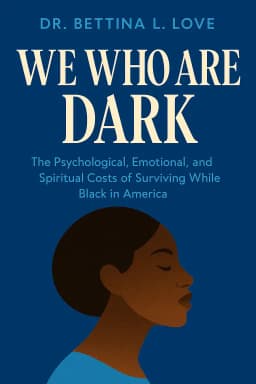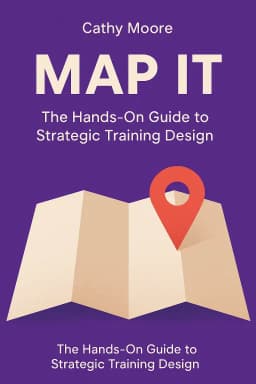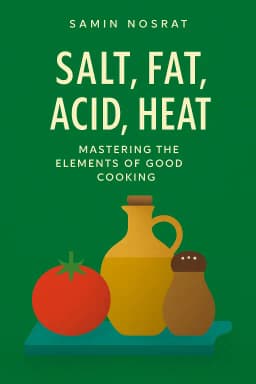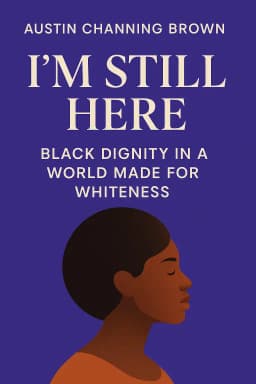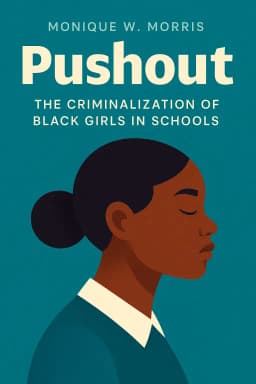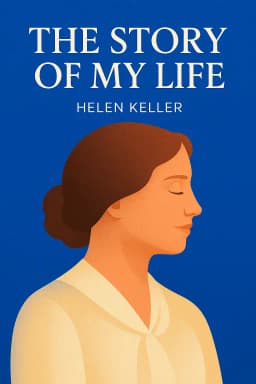
Unlocking Helen Keller
Golden Hook & Introduction
SECTION
Laura: Okay, Sophia, quick. Before we dive in, what's your one-sentence, brutally honest summary of what you thought you knew about Helen Keller? Sophia: Oh, easy. Inspirational deaf-blind girl, water pump, the end. Basically, the historical equivalent of a 'Live, Laugh, Love' poster. Laura: Exactly! And that's the myth we're going to dismantle today. That poster version is precisely what makes people underestimate one of the most fascinating minds of the 20th century. Sophia: I'm already intrigued. So we're going beyond the feel-good story? Laura: Way beyond. Today we’re diving into The Story of My Life by Helen Keller. And what most people don't know is that Keller wrote this at just 22 years old, before she even graduated from Radcliffe. She became a global icon based on this book, and then spent the next 60 years of her life as a radical socialist, a co-founder of the ACLU, and a fierce advocate for birth control and workers' rights. Sophia: Hold on. The ACLU? A socialist? That was definitely not on the poster. Why do we never hear about that part of her life? Laura: That is the central question. And to understand the myth, we have to start with the moment it was born. The moment that wasn't just about water, but about the birth of a mind from absolute silence and darkness.
The 'Miracle' of Language: From Isolation to Connection
SECTION
Sophia: Okay, so take us there. Before the famous 'miracle,' what was her world actually like? The book must describe it. Laura: It does, and it's chilling. She describes her early life as being in a "prison-house." At 19 months old, an illness, probably meningitis, took her sight and hearing. She was left in a world with no words, no concepts, just raw, unnamed sensations. Her own family described her as a "little savage." Sophia: That sounds incredibly isolating. It's hard to even wrap your head around a consciousness with no language. Laura: And that isolation bred a deep, explosive frustration. There's this one story in the book that just perfectly captures it. When she was about five, she got into a tussle with her mother. In a fit of rage, Helen realized her mother had gone into the pantry. So she slammed the door, turned the key, and locked her mother inside. Sophia: Oh my gosh. A five-year-old? Laura: A five-year-old. And she just sat on the porch steps, feeling the vibrations of her mother pounding on the door, and she writes that she was shaking with "glee." It wasn't evil. It was a desperate, powerless mind finally exerting some control over its environment. It was a scream for help without the words to scream. Sophia: Wow, that's terrifying, both for her and her mother. It's pure, raw frustration. It makes you realize that without language, you can't process emotion. You can only act on it. Laura: Precisely. And that's the state she was in when her teacher, Anne Sullivan, arrived. For weeks, Anne tried to teach her, spelling words into her hand. She taught her 'd-o-l-l' for doll, 'c-a-k-e' for cake. Helen could mimic the signs, but she didn't get it. She thought it was just a game. She didn't understand that these finger movements meant the thing itself. Sophia: So she had the symbols, but no understanding of symbolism. It's like having a dictionary full of words you can't read. Laura: Exactly. The frustration was building. Helen had even smashed a new doll in a fit of anger. Then came the moment. Anne led her outside to the well-house, the water pump. She put one of Helen's hands under the spout as someone pumped. As the cool water gushed over that hand, Anne took the other and spelled, slowly at first, then rapidly, 'w-a-t-e-r'. Sophia: I'm getting chills just thinking about it. Laura: Keller writes, "That living word awakened my soul, gave it light, hope, joy, set it free!" Suddenly, everything clicked. The cool, flowing sensation had a name. It was 'water.' She dropped to the ground and started touching everything—the pump, the trellis, the ground itself—demanding its name. She learned thirty new words in a few hours. Sophia: That's unbelievable. It's like her brain was a computer without an operating system, and Anne Sullivan just installed it. It makes you realize language isn't just for talking to others; it's for talking to yourself. It’s how you build a world inside your own head. Laura: That's the core of it. The 'miracle' wasn't just learning a word. It was the discovery of the concept of words themselves. It was the birth of her conscious, thinking mind. And once that mind was born, it learned so fast that it almost broke her.
The Myth vs. The Reality: Deconstructing the 'Perfect Hero'
SECTION
Sophia: What do you mean, it almost broke her? That sounds like the opposite of the inspirational story we all know. Laura: Well, this brings us to the first major crack in the 'perfect angel' myth. A few years after the water pump, Helen, now a voracious learner, wrote a short story called 'The Frost King' as a birthday gift for the director of the Perkins Institution for the Blind. He loved it, published it, and it was celebrated. Sophia: That sounds great. What's the problem? Laura: The problem was, another publication soon pointed out that Helen's story was incredibly similar, in plot and language, to a story called 'The Frost Fairies' by an author named Margaret Canby. The accusation was immediate and brutal: plagiarism. Sophia: Wait, they accused a deaf-blind child of plagiarism? That's insane. She couldn't have just picked up a book and copied it. Laura: Of course not. But they held a formal investigation. A court of eight judges interrogated this little girl for hours. She was terrified and confused, insisting she had no memory of ever hearing the story. Anne Sullivan later figured out that years before, the story had been read to her through finger spelling, and Helen had absorbed it unconsciously. Sophia: That’s a classic case of cryptomnesia, or unconscious memory. It happens to writers and musicians all the time! George Harrison was famously sued for it. But to put a child through that kind of ordeal… Laura: It was devastating. She wrote that the experience left her with a deep fear of her own mind. For a long time, she was terrified to write anything, convinced that no thought she had was truly her own. It was a deep psychological wound. Sophia: That is just heartbreaking. It also feels like a classic case of society not believing a disabled person's account of their own experience. They couldn't accept that this 'miracle' girl could be flawed or even just... human. They needed her to be a pure vessel for inspiration. Laura: You've hit on the exact point. That pressure to be a perfect symbol followed her for her entire life. And it got much, much worse when she grew up and started having opinions they didn't like. Sophia: The socialism and ACLU stuff you mentioned earlier. Laura: Yes. When she started writing and speaking out in favor of women's suffrage, racial justice, and labor unions, the press, which had once adored her, turned. Newspaper editorials suddenly started questioning her. They'd write things like, "How can she possibly understand these complex political issues?" They claimed she was just a puppet, that Anne Sullivan was feeding her these radical ideas. Sophia: Wow. So when she was a quiet, inspirational child, her mind was a miracle. But when she became an outspoken, political woman, her mind was suddenly defective and easily manipulated? Laura: That's the cruel irony. They celebrated her for learning to communicate, but they wanted to control what she communicated. Mark Twain, who was a friend and supporter, was furious about this. He wrote that the press "poured out upon her the slop of their little minds." They couldn't handle that their pure, angelic symbol had a radical, brilliant, and fiercely independent mind of her own.
Synthesis & Takeaways
SECTION
Sophia: So the story we tell about Helen Keller is really a story about ourselves. We celebrate the 'miracle' of her learning to communicate, but we get deeply uncomfortable when she uses that voice to say things that challenge our own worldview. Laura: Right. The book, The Story of My Life, shows us that language is the tool that sets a mind free. It’s a beautiful and powerful testament to that. But her full life story asks a much tougher question: Once a mind is free, do we actually have the tolerance to listen to what it has to say? Especially when it comes from someone we've put on a pedestal. Sophia: It’s like we want our heroes to be monuments—still, silent, and symbolic. We don't want them to be living, breathing people who might disagree with us. Laura: And that erases their humanity. The real Helen Keller wasn't a saint. She was a complex, sometimes contradictory, incredibly intelligent woman who fought against injustice her whole life. The myth of the perfect hero is so much less interesting than the reality of the radical activist. Sophia: It makes you wonder, who are the heroes we're simplifying today? Whose messy, complicated, and brilliant reality are we ignoring in favor of a more comfortable story? Laura: That's a powerful question to sit with. The book is the beginning of her story, but her life challenges us to look past the easy inspiration and engage with the difficult, complicated truth of a human being. We'd love to hear your thoughts on this. Join the conversation and let us know what you think. Sophia: This is Aibrary, signing off.


